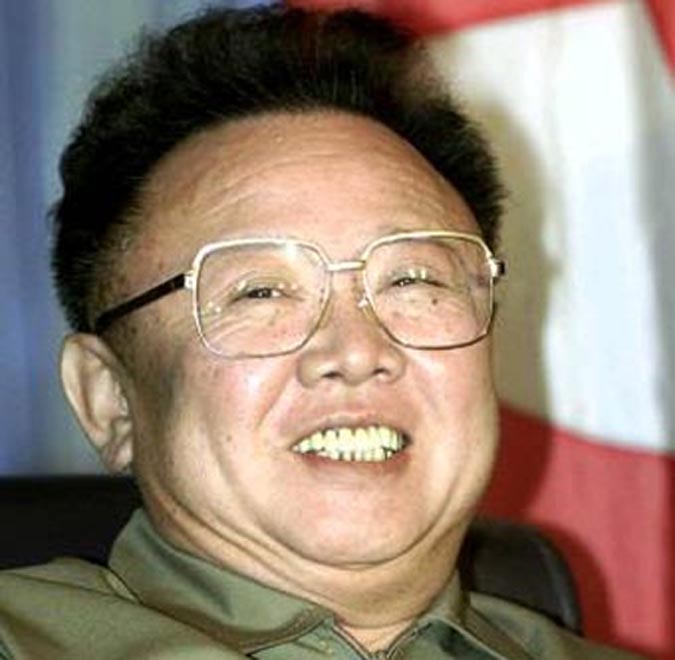North Korea's authoritarian leader Kim Jong Il is suffering from pancreatic cancer and is not expected to live more than five years, a news report said Monday, the latest speculation to emerge about his health after he reportedly suffered a stroke last year, Associated Press reported.
Analysts, however, were skeptical, saying Kim's increasing appearances in public this year suggest that he is unlikely to be suffering from cancer.
South Korea's YTN television reported that the 67-year-old strongman was diagnosed with pancreatic cancer around the time he collapsed due to a purported stroke - reportedly in August last year.
YTN quoted unidentified intelligence officials in South Korea and China as saying the disease is "threatening" Kim's life. Details were few, however, and the report offered no information on why the sources think Kim has cancer.
The report said that pancreatic cancer is usually only discovered in its final stage, and considering Kim's age, he would not live more than five years.
The American Cancer Society lists rather less optimistic data; it says about 20 percent of people live at least one year after they discover they have pancreatic cancer but that fewer than 5 percent survive as long as five years.
South Korean government officials said they could not confirm the report or had no information on it. And North Korea's closed nature and its state-controlled media make it all but impossible to verify reports about Kim's health.
Kim's physical condition has been the focus of intense media speculation due to concerns about a possible political power struggle in the North if he were to die without naming a successor.
Kim assumed power after his father died in 1994 of heart failure at age 82. It has been widely reported that his third and youngest son, Kim Jong Un, is being groomed as the heir, but the regime has made no announcement to the outside world.
Monday's report was the latest media speculation on Kim's health after he made a rare televised appearance last week at an annual memorial for his late father and North Korea's founder, Kim Il Sung.
Footage showed Kim looking markedly thinner and with less hair. He also limped slightly, and the sides of his tightly pursed lips looked imbalanced in what were believed to be the effects of a stroke. The images touched off speculation that Kim - suspected of having long suffered diabetes and heart problems - could have other health worries as well.
North Korea watchers in Seoul, however, were skeptical of the YTN report.
"I saw the North's state TV repeatedly showing Kim's appearance at the memorial," said Kim Yong-hyun, a professor at Seoul's Dongguk University. "If they weren't confidant of his health, they couldn't do it."
Yang Moo-jin, a professor at Seoul's University of North Korean Studies, said he also doubts the YTN report about pancreatic cancer because the number of Kim's "field-guidance" trips to workplaces has increased significantly this year.
"Would he be able to carry out such brisk activity while having pancreatic cancer?" Yang said.
South Korea's Unification Ministry, which closely monitors the North, said late last month that Kim made 77 trips to factories and farms across the nation through late June, compared with 49 visits made during the same period last year.
Such trips are reported in state media and sometimes accompanied by still photos. Images of Kim moving around, however, are rare. Footage of Kim was last previously shown in April when he was re-elected leader by the country's rubber stamp parliament.
Medical doctor and professor Min Yang-ki of Seoul's Hallym University Medical Center has said diabetes usually leads to weight loss. The neurologist also said Kim's limping appears to be a result of a stroke. However, he said, overall it appeared Kim has recovered from that reported illness.
Kim walked on his own into a Pyongyang auditorium for last week's memorial at a normal pace, though limped slightly, and bowed while standing during a moment of silence.






